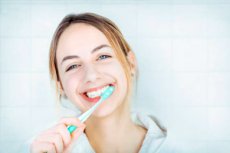New publications
Bullying can take a toll on dental health
Last reviewed: 02.07.2025

All iLive content is medically reviewed or fact checked to ensure as much factual accuracy as possible.
We have strict sourcing guidelines and only link to reputable media sites, academic research institutions and, whenever possible, medically peer reviewed studies. Note that the numbers in parentheses ([1], [2], etc.) are clickable links to these studies.
If you feel that any of our content is inaccurate, out-of-date, or otherwise questionable, please select it and press Ctrl + Enter.

Young people who have had adverse childhood experiences are at increased risk of poor dental health, which is important to consider in dental care, according to new research published in BMC Oral Health.
Most teens brush their teeth every day, but not all. Just over 6% of 13- to 17-year-olds skip brushing their teeth all or part of the time. Research shows that bad childhood experiences, including bullying, are linked to poor dental habits.
"We can't say for sure that one leads to the other, but we know that there is a connection," says PhD candidate and psychology specialist Lena Myran from the Dental Competence Centre in Norway.
She explores how adverse childhood and adolescent experiences impact dental health.
Participants in the Young-HUNT Survey were asked whether they had experienced anything negative as a child, such as bullying, violence, or alcohol abuse from their parents. They were also asked about their dental hygiene habits. The answers were compared with data from the National Dental Service.
"We did a study where we combined self-reported responses with clinical data on dental health. That makes the study unique, and we were a little surprised by what we found," Muran says.
Vulnerable group
The study involved 6,351 young people. The results showed that young people with adverse childhood experiences were more likely to report not brushing their teeth daily. Among other things, young people aged 16 to 17 who experienced bullying were more likely to report poor dental hygiene habits.
Poor dental health is also associated with feelings of shame.
"This doesn't mean that everyone who has been bullied doesn't brush their teeth every day. Most people brush their teeth every day.
The vast majority take good care of their teeth and have little tooth decay. However, there is a group that is more vulnerable and we need to be aware of that," says Muran.
Poor dental care habits can lead to tooth decay, which in turn increases the risk of cavities and can cause pain.
"Tooth pain can lead to avoidance of dental treatment, which in turn can lead to fear of visiting the dentist," says Muran.
"The correlations we find give us important insights into young people. Experiences of violence, abuse and bullying are harmful in many areas of life, and we are now seeing that this also applies to dental health.
The more different types of bad experiences you had as a child, the greater the impact on your dental care habits and cavities," says Muran.
The need for an integrated approach
The researchers also found a correlation between dose and response.
"The more different types of bad experiences you had as a child, the greater the impact on your dental habits and tooth decay. For example, many people experienced both abuse and alcohol problems from their parents. These young people are more likely to have poor dental health than those who experienced only one of the two," says Muran.
Muran stresses that most young people who have had adverse childhood experiences have good dental health. However, there are some young people who do not take good care of their teeth, a habit that is important to establish at an early age.
"These findings suggest that dental clinics need to take a holistic approach. When a young person comes in with multiple cavities, clinics may be more attentive to whether they have had difficulties in their life that may have contributed to poor diet or poor dental care habits.
Approach to causes
Muran believes that dentists should ask themselves what causes poor dental health. Asking patients about adverse experiences is important when trying to identify vulnerable people and understand the underlying reasons for seeking dental treatment.
"Instead of saying, 'You need to brush and floss better,' we can ask, 'Why is it becoming more difficult for you to brush your teeth?' We can also ask ourselves, 'What has the patient experienced that has caused their dental health to deteriorate?'"
Muran believes this is a more comprehensive approach.
"There are many reasons why a person might have cavities or problems with dental care. No one intentionally neglects their teeth, but good advice and instructions about the importance of brushing teeth are not always received by everyone," says Muran.
An integrated approach, on the other hand, may lead to earlier and more targeted preventive measures.
"This may include measures such as providing additional support for dental care training or referrals to other appropriate support services," says Muran.
More time is needed for patients
As a psychologist, Myuran understands the importance of focusing on communication and building trust when interacting with young patients. She would like to see dentists focus more on building positive and supportive relationships with young people.
"Creating an environment where young people feel safe enough to be honest about their habits and share their experiences is a prerequisite for helping some vulnerable patients."
Muran says many dentists and hygienists already do a great job of building good relationships with patients.
"By continually prioritizing and developing trusting relationships, we can facilitate better tailored treatment plans. But these tasks take up valuable time for dentists."
It is therefore important that public dental service leaders promote this.
"Good collaboration not only results in better dental health for young people, but also has a positive impact on their overall quality of life," says Muran.
